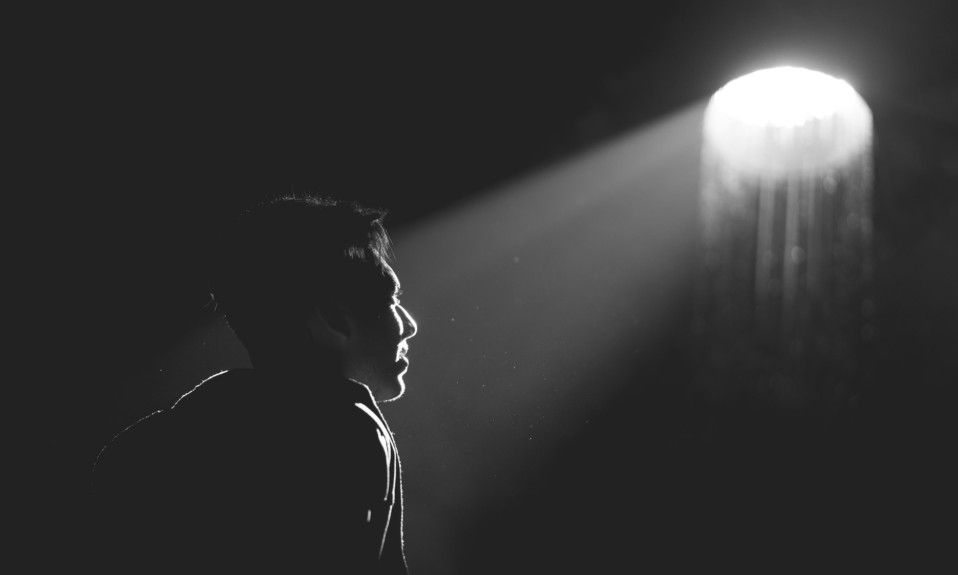Life-affirming treatment transcends clinical expertise, as our writer has been frequently reminded
This post is reprinted with permission from one of TreatmentMagazine.com’s go-to blogs about addiction, treatment and recovery: Recovery Review.
By David McCartney
I must have signed tens of thousands of prescriptions over the years for a variety of medical conditions from athlete’s foot to diabetes. Not one patient, as far as I can remember, has congratulated me on my expertise around knowledge of the evidence base, guideline awareness, titration skills, dose precision, grasp of pharmacodynamics or knowledge of drug interactions. Important and necessary as all of these are, these things are often valued more by science than they are by patients.
Don’t get me wrong—I respect medication and its impact. People’s lives often improve because of what we prescribe, but when people have fed back to me after meds have been started, the take-home message has not been about the medication. The patients I work with rank other things higher than the prescription and even its impact.
What I’ve learned from patient feedback is that certain values—listening, empathizing, caring, and taking time with them—are far more valued than the drugs I prescribe, regardless of what the evidence base says. Sometimes the medication does not work the way we hoped it would and sometimes it does. While many medications are undoubtedly effective, generally I believe we doctors tend to over-value what a pill, cream or liquid can do. I certainly have done—many times. However, there are other things in our meetings with patients that have value and these are not always recognised.
Studying the medical humanities can help doctors gain insight into what illness means for patients, but crucially can increase self-awareness and self-perception. The subjects that come under this banner take in concepts like relationship, emotion, the narrative and spirituality.”
In her blog for the BMJ, Meagan Brennan raises the concern that as we focus more and more on the evidence, we lose the humanity that is essential for good care and outcomes. She points out that the promising-sounding “personalised medicine” that is now being introduced, in fact, takes us further from “the heart of doctor-patient interactions and deeper into the realm of impersonal science.”
She lauds the new interest in the humanities that is developing in medical student teaching. I remember so strongly when I was at medical school missing the subjects I had studied at school that had nothing to do with science. I was missing out on things that inspired me and sent my imagination and creative spirit soaring. Dealing with suffering, the impact of trauma, the bleakness of illness and death—and what those things actually mean—was not something I was prepared for in any way by my scientific training at university. In fact, during a six month hospital job in a cancer unit, I almost gave up on medicine as a career. My spirit had been diminished by watching the suffering my patients experienced—sadly, a significant number were to die despite the best treatment available. I wasn’t able to admit it at the time, but I was frightened and out of my depth. My difficulty in dealing with this was not unique but this simply wasn’t something we junior doctors were encouraged to talk about. Several decades later I find myself considering the question raised by Brennan: could the study of medical humanities have helped?
Many of us experienced harsh cuts to treatment services not that long ago. I remember thinking that cutting pediatric or cancer services to that degree would have been seen as unconscionable, yet it happened in addictions.”
Studying the medical humanities can help doctors gain insight into what illness means for patients, but crucially can increase self-awareness and self-perception. The subjects that come under this banner take in concepts like relationship, emotion, the narrative and spirituality. While medical humanities may help us humanize our own and our patients’ experiences, stigma does a very effective job at doing the opposite.
In another paper by Harry Sumnall and colleagues, the dehumanizing of heroin users is evidenced—framing those who use heroin as different, less worthy, and even ‘disgusting’. People who use heroin become less than human and more animal-like. Such characterization is associated with “moral disengagement” and distancing by others and can have real-life consequences, including the “denial of human agency” in popular and political discourse. This can lead to reduction of treatment funding when policymakers rationalize that due to lack of public support, there will be little protest when resources for addiction treatment are slashed. Many of us experienced harsh cuts to treatment services not that long ago. I remember thinking that cutting pediatric or cancer services to that degree would have been seen as unconscionable, yet it happened in addictions.

How do Sumnall and colleagues think dehumanizing should be tackled? Simply, as it turns out: by social inclusion and by humanizing narratives. Letting people tell their stories in the media —“encouraging compassionate media representations”—is likely to humanize. After all, listening is a two-way street. My listening to my patients is appreciated by them, but the same process has the power to change the way I see their world—how I perceive and relate to them.
The topics of humanizing and dehumanizing are ultimately about relationship and connection, or lack of it. When I am connected to you, I see your humanity—I value you more and draw closer. In a doctor/patient relationship this may be expressed as commitment. My determination to support you strengthens the more connected to you I become. This process needs healthy boundaries to be effective, but many of us can find ourselves distancing from pain and suffering because of the emotional cost of connecting. My frightened junior doctor self did not recognize that although I could not save every life from cancer, I was doing something meaningful by being present, listening and connecting. Perhaps this represented being spiritually available.
Mark Galantar and colleagues frame deeply felt commitment as a spiritual component in the recovery process which in itself adds to recovery capital—the resources people can call upon to help them resolve their problems and recover. In a paper about spirituality in addiction medicine, they point out that recovery can signify finding “meaning and purpose in life.”
Galanter et al reference the strong evidence behind the spiritual approach of 12-step groups citing the recent Cochrane review on Alcoholics Anonymous, and although they point to neuro-imaging research that may support the potential benefits of spirituality, they also highlight that the dominance of a biological/medication perspective is often at the expense of integrative approaches which acknowledge the ‘interconnections of mind, body and society’.
They assert that spirituality is often ‘culturally resonant’ with underserved or disadvantaged groups and that ‘engaging spirituality and related community organizations in treatment is an important aspect of improving treatment access, outcomes, and equity for underserved groups’.
Addiction, the behaviors associated with it, society’s stigmatizing attitudes and the shame that so many people carry with them as a result, can result in dehumanizing attitudes and responses. Studying the medical humanities may help current and future doctors be better physicians and to be more connected to themselves and their patients. Hard science alone cannot provide us with all of the tools that we need—a spiritual dimension is also required.
What if … we are missing a piece of the evidence in our evidence-based practice? What if this something is both profound and necessary? Whether we call it humanity, connection, spirituality or something else, the amazing thing is that by adding this in and truly listening to our patients’ stories we will help not just them but ourselves, too.”
Everyone will have their own understanding and experience of “spirituality,” but in my practice, I think of it simply as things that enrich my spirit—that make me spirited. When my spirit is quickened, then I am a better doctor. Listening to patient narratives—“what’s happened to you?”—finding meaning in those stories, putting judgement aside, empathizing with the individual, connecting with that person in front of me and meeting them where they are—are for me deeply spiritual things. Others may choose to call the same things something more scientific—a complex interaction between oxytocin, serotonin and dopamine perhaps, but I find myself resisting that urge.
What if, as Meagan Brennan suggests, we are missing a piece of the evidence in our evidence-based practice? What if this something is both profound and necessary? Whether we call it humanity, connection, spirituality or something else, the amazing thing is that by adding this in and truly listening to our patients’ stories we will help not just them but ourselves, too.
To be a good doctor you need to have a robust grasp of the science of medicine, but that’s not enough in itself. We need to come alongside our patients, draw close and travel a bit with them. Listening compassionately to their story is the way to do this. When the day comes that I hang up my stethoscope for the last time, my hope is that I am not so much remembered for my prescriptions or my medical expertise (such as it is) as I am for my humanity.
This Recovery Review post is by David McCartney, who is an addiction medicine specialist and Clinical Lead at LEAP, a quasi-residential therapeutic community addiction treatment program in Scotland. He trained as a family medicine practitioner and spent much of his career in practice in inner-city Glasgow. Having retrained in addictions, he now works exclusively in the field and until recently was an advisor to the Scottish government on drugs policy. He is a member of the Royal College of General Practitioners. His opinions expressed here don’t necessarily represent the views of his employer. Find more of his writing, as well as a thought-provoking range of articles, insights and expert opinions on treatment and addiction, at RecoveryReview.com.blog.
Top photo: Priscilla Du Preez; bottom photo: Harry Cunningham














